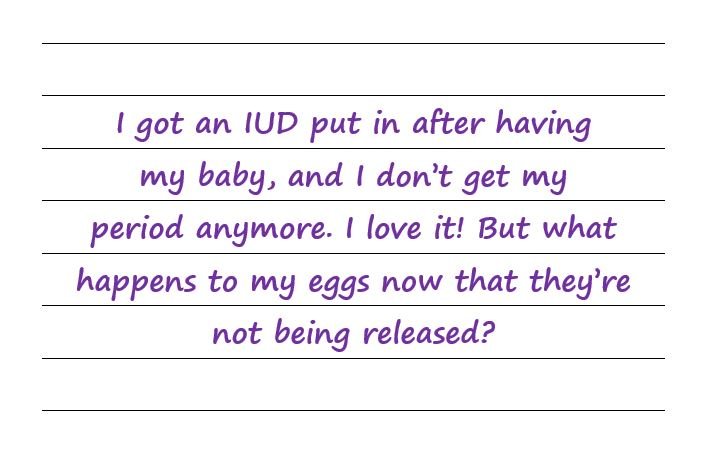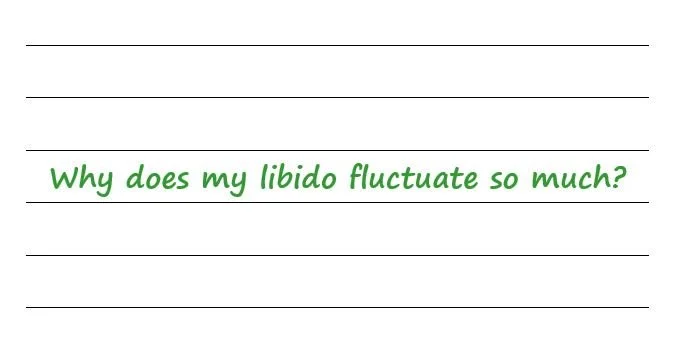I Got An IUD Put In. What Happens To My Eggs Now That They’re Not Being Released?
I’m glad you found a method you like!
Before I talk about what happens to the eggs, I just want to explain a little bit about what IUDs are. And also the differences in the types that are available.
An IUD is an Intrauterine Device. It is inserted by a health care provider into the uterus. A lot of people like IUDs because they can remain in place for many years. IUDs are also very effective at preventing pregnancy. They’re over 99% effective.
There are two major types of IUDs, hormonal and nonhormonal. The nonhormonal IUD contains copper. The copper IUD can be left in for up to12 years. But a person can choose to have it removed earlier if they want to. Because the copper IUD has no hormones, people who have it will still get their period. This means that an egg is released once a cycle, the same way it would be if there was no IUD.
The other type of IUD is the one that has hormones. There are a few on the market in the United States. These include Mirena, Skyla, Liletta and Kyleena. All of these contain the hormone progestin. The hormonal IUDs differ in size and in how long they can remain inside your body. Some can stay in for 3 years, some for up to 8 years. Like the copper IUD, they can be removed early. With the hormonal IUDs many people do stop getting their period completely. This is because the progestin can impact ovulation. Some people’s periods don’t stop completely, but they will get lighter and less painful. This is why hormonal IUDs are sometimes recommended for women with endometriosis. Or for people who have really heavy periods.
All hormonal methods of contraception will impact ovulation. This includes the IUD, the pill, the implant, patch, shot and the vaginal ring. Progestin only pills, including Opill which is the only over the counter pill available in the United States as of right now, may not completely stop ovulation. Some people do still ovulate when using the hormonal IUD as well.
What happens during the menstrual cycle is that hormones cause follicles on the ovary to be produced. Usually one of those follicles matures and releases an egg. The other follicles are simply reabsorbed into the body. When you don’t ovulate because of hormonal contraception, the follicles that would have matured are simply reabsorbed into the body.
In case you’re wondering, this will not have an impact on your future fertility once you stop using your IUD. It also won’t impact when you begin menopause.
There’s one more thing I want to mention. While the IUD is really good at preventing pregnancy, it provides absolutely no protection from STIs. So if that’s a concern, I would suggest using a condom during sex play.
Until next time, be safe and have fun!
Have a question you want answered? Submit it here: https://milsteinhealthconsulting.com/heydrsue


